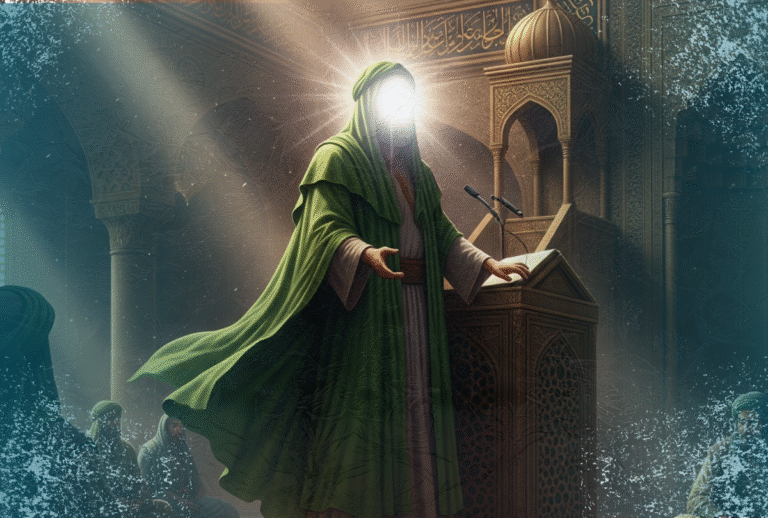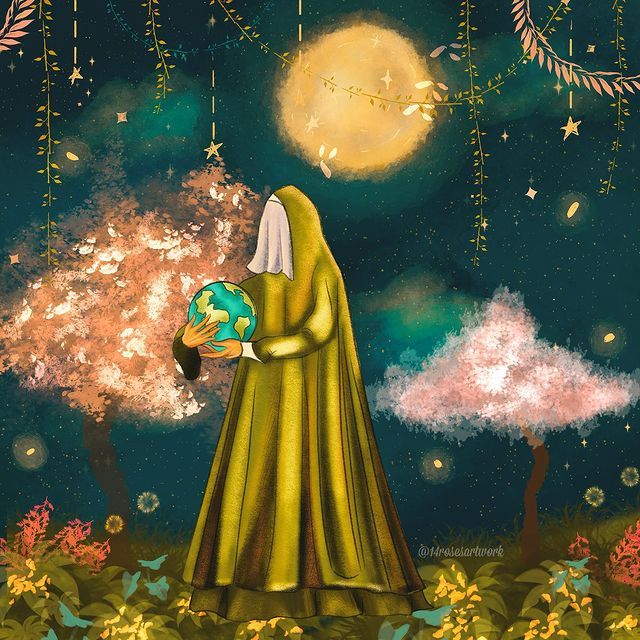A Match Made in Heaven: The Wedding of Imam Ali (as) and Lady Fatima (sa)
In Shia Islam, there are many joyous and sorrowful occasions, but one of the most celebrated is the marriage between Imam Ali (as) and Lady Fatima (sa). Their union is a divine match that symbolizes love, sacrifice, and devotion to Allah (swt).
Let’s explore the story behind their marriage, the mahr of Fatima (sa), and how their love continues to inspire us.
Imam Ali’s (as) Proposal
When several companions of the Prophet (saww) asked for Lady Fatima’s (sa) hand in marriage, their requests refused. However, Imam Ali (as), encouraged by his close relationship with Rasoolallah (saww), finally approached him to ask for her hand. Although he was initially shy, the Prophet (saww) welcomed his proposal with joy.
“Welcome! Allah (swt) has ordered me to marry my daughter to you,” the Prophet (saww) said (Kanz al-Ummal, v.6), pleased that Imam Ali (as) sought to marry his daughter.
When did Imam Ali (as) and Sayyida Fatima (sa) get married?
The wedding took place on the 1st of Dhul Hijjah, 2 AH. This was 10 months after their engagement.
The Prophet (saww) asked his wife, Umm Salamah, to take Lady Fatima (sa) to Imam Ali’s (as) home. The Prophet (saww) recited the nikkah ceremony for the heavenly couple.
What was Lady Fatima’s (sa) mahr?
According to many narrations, Lady Fatima’s (sa) mahr (dowry) was between 400 and 500 dirhams.
When The Prophet (saww) asked Imam Ali (as) if he had anything to pay for Sayyida Fatima’s (sa) mahr (dowry), Imam Ali (as) said he had a sword, armour, and a horse.
Rasoolallah (saww) advised him to sell his armour and use the money as mahr.
This simple yet meaningful exchange teaches us that true love and devotion are not measured by material wealth but by the sacrifices one makes for the sake of Allah (swt). The mahr of Fatima was thus fulfilled through this act of sacrifice, symbolizing the purity and selflessness of their relationship.
Lessons from their marriage
Their marriage taught timeless lessons that still resonate today. Here are five values we can learn from their union.
1. Simplicity over extravagance: Their wedding was simple and sincere, with no focus on wealth or luxury. It reminds us that faith and character matter more than material displays.
2. Trust in divine will: The marriage only took place after divine approval. Both Imam Ali (as) and Lady Fatima (sa) trusted Allah’s (swt) plan completely.
3. Shared purpose: Their relationship was built on serving Islam and supporting The Prophet (saww). They moved through life with a united mission.
4. Contentment in hardship: They lived with very little, yet remained grateful. Their example shows that peace comes from contentment, not possessions.
5. Mutual respect: Imam Ali (as) and Lady Fatima (sa) honoured and supported one another. Their home was filled with love, care, and respect.
Honouring their marriage
Their marriage is a testament to the strength of faith, the beauty of simplicity, and the power of generosity.
Honour this sacred union by giving in their name: offer your Qurbani, care for an orphan, or support a widow’s future.
May their example inspire our actions.


 Donate Now
Donate Now
 Donate
Donate









